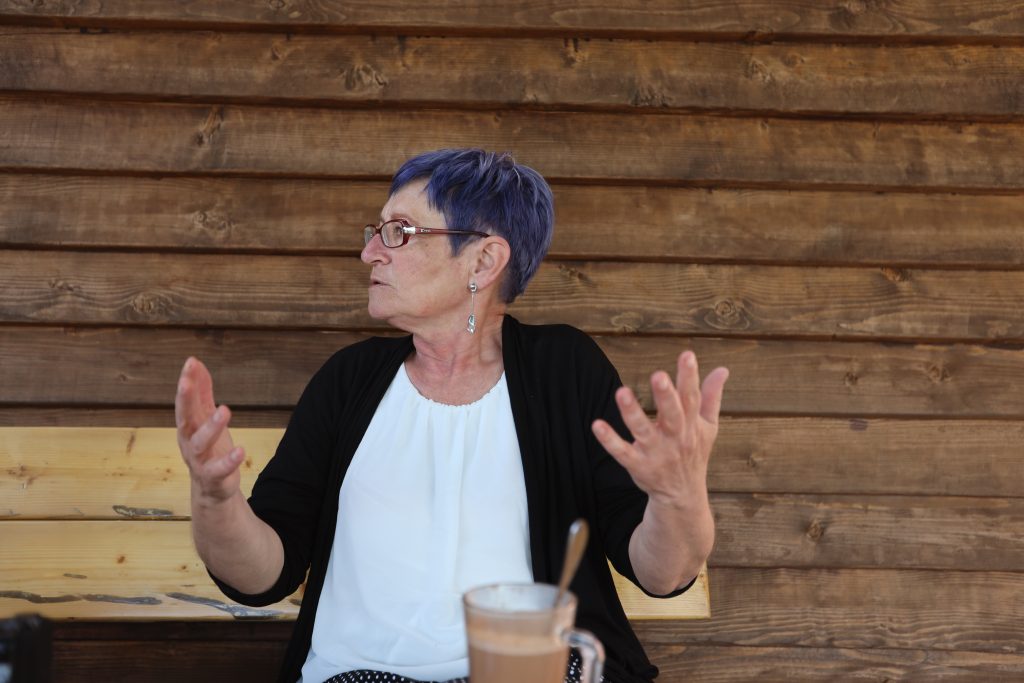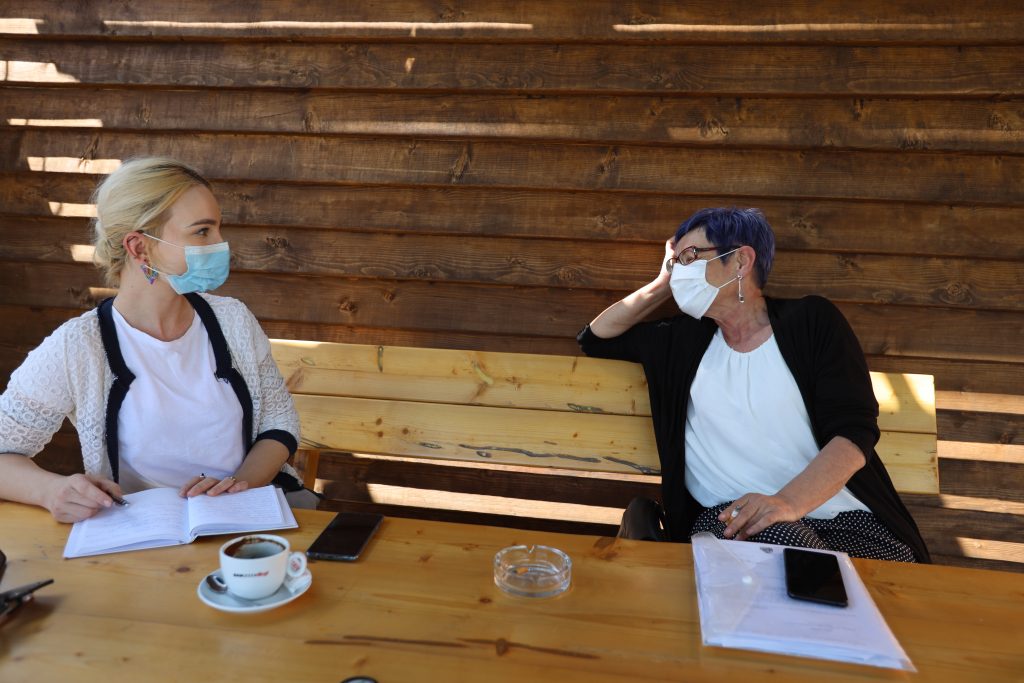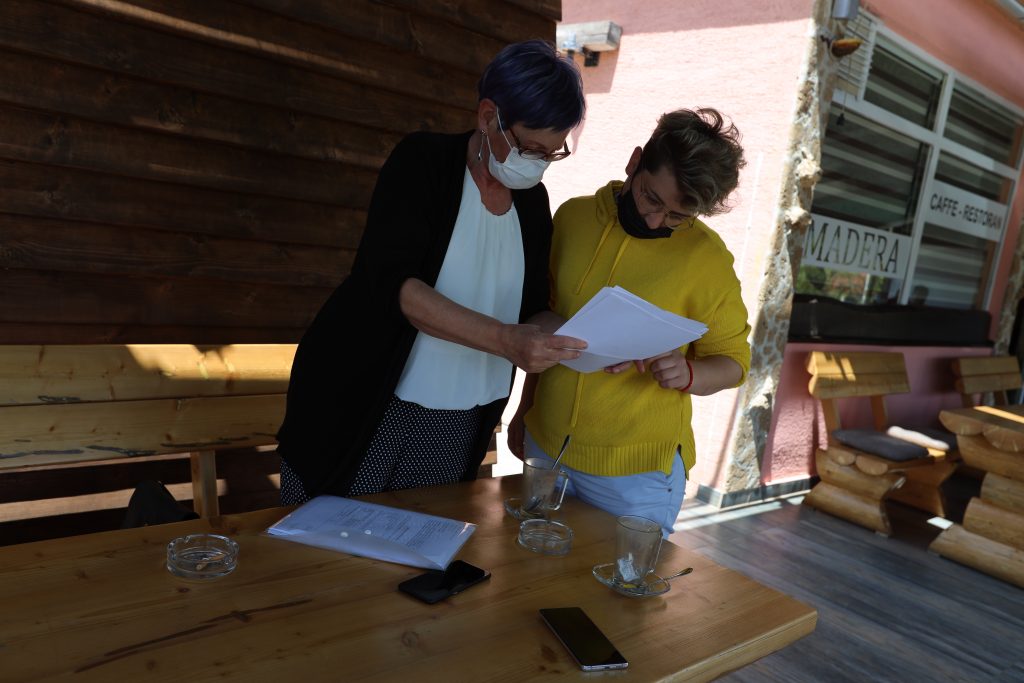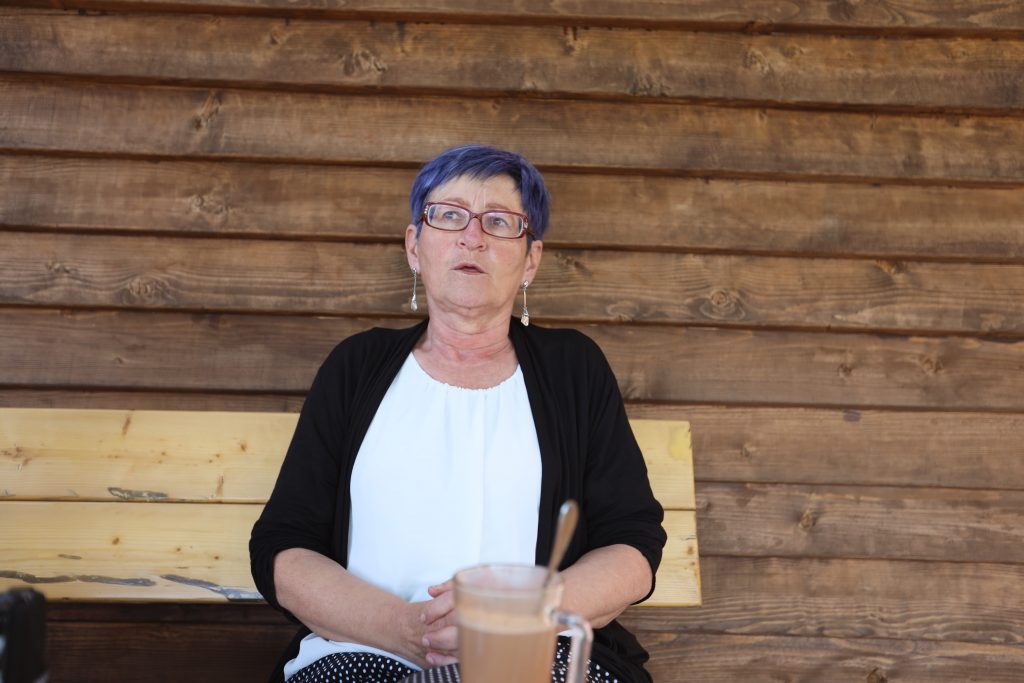Živana Sabljić is the first returnee to Drvar, who was active in the NGO sector. She is no longer active in the NGO sector, but that does not prevent her from continuing to be an activist because, as she says, as Tito’s pioneer, she is used to reacting to every kind of injustice and every time she feels the need to react. Recalling the problems with the import of waste to Drvar, Mrs. Sabljić reminds that the removal of waste within Bosnia and Herzegovina is not adequately regulated, we are surrounded by waste, and then the situation occurs that we import waste from other countries. It all started when Mrs. Sabljić came into possession of a delivery note indicating that waste from Italy was being transported in Drvar. She then spontaneously published this information, followed by the reaction of the citizens, which surprised her.

The permit for the import of waste from Italy was issued when the Federation of Bosnia and Herzegovina declared a state of emergency, and the waste was supposed to come from Padua, a province in Italy that was seriously affected by the coronavirus pandemic at the time. The permit issued by the Federal Ministry of Environment and Tourism for a period of 5 years provided for 41,000 tons of waste to be imported into Drvar. A group of citizens went on their own to oppose the import of waste to Drvar, in the meantime they learned that a waste recycling factory was registered in Drvar, at the address of the Drvar Municipality building, which has a work permit in which it was clarified that the factory has renowned appliances and machines for waste processing. The permit for this factory was issued by the Federal Ministry of Environment of Canton 10. The start-up of this factory required a capital of 1200 BAM, invested by three owners, 400 BAM each, the factory itself never existed, nor renowned waste processing machines. The first batch of 414 tons of waste that was transported to Drvar was unloaded in an abandoned factory, both inside and outside the factory. Based on the obtained permit, the import of 8,200 tons of waste per year was allowed on the territory of Bosnia and Herzegovina, and as the permit was issued for a period of 5 years, the total amount of waste that was to be imported into Bosnia and Herzegovina is 41,000 tons.
414 tons of waste from Italy was transported to Drvar, the Federal Inspectorate took 15 samples and concluded that the waste was harmless, which raises doubts among activists about the sampling of waste because they believe that 15 samples per 414 tons is not enough to get valid conclusion and performed the necessary analysis. After learning about the import of waste into Drvar, Mrs. Sabljić organized protests, which were joined by about a hundred other citizens, who raised their voices and blocked the road, which resulted in the waste being eventually removed from Drvar. As soon as the activists of the informal Initiative titled Drvar without Italian waste took to the streets, the Municipal Council of Drvar met and unanimously voted that the waste must be removed from Drvar. An even bigger victory is the fact that the Federal Ministry of Environment and Tourism has revoked the permit to import waste.

Sabljic emphasizes that in order to obtain a permit for the import of 41,000 tons of waste to Drvar in a period of 5 years, it was necessary to register the company by 3 people and 1,200 BAM. The mayor of Drvar previously met with the owners of this company, who asked for the composting plant to be opened, they also applied to the public call of the Municipality, but their request was rejected, because they did not have all the necessary documentation at that time. The Municipality of Drvar appears in the company’s documentation only as their seat. After the import of waste into Drvar, the mayor of Drvar voluntarily submitted urgencies to the competent authorities at the federal and cantonal level. CCI supported activists from Drvar through the writing of requests for access to information, which has enabled them to obtain a significant amount of documentation related to this case. The decision for the import of waste, which Mrs. Sabljić received on the basis of Freedom of Access to Information Act. In the decision, it was stated that 6,000 tons of textiles, 1,000 tons of plastic, 1,200 tons of printing toners will be transported to Drvar annually – a total of 8,200 tons per year.
Živana Sabljić points out with regret that citizens reacted very poorly and that this is a big problem. They are not aware of the strength of their reaction and rebellion against injustice, and emphasizes that in civic action it is extremely important to have a person who has the courage to oppose the system and to be persistent, as well as the importance of support by other and getting involved when you notice any kind of injustice.
The removal of illegally stored waste from Drvar in the amount of 414 tons cost 165,000 BAM, which were provided from the budget, citizens money. The Initiative Drvar without Italian waste sent a request to access information on how and in what way this waste was further disposed of (the request was sent to the Federal Ministry of Environment and Tourism), but the request was rejected by the Federal Administration for Inspection Affairs with the explanation that it would harm the business of Kemiš d.o.o. to remove waste from Drvar, as the response would contain sensitive commercial data.

When asked why Mrs. Sabljić decided to react, motivate citizens and launch an initiative, she answered that this way of volunteering is extremely important to her, she loves her city and sees all its potential. Regarding this situation, she explains that she only knows that someone brought waste to her local community and demands that those responsible be punished not only for importing waste, but also for poisoning and destroying Drvar, as well as for 165,000 BAM paid by citizens through public budget for waste removal from Drvar. She emphasizes that the video clips from the place where the waste was stored aroused the interest of the general public. Media from all over the world were interested in this case, the media from Bosnia and Herzegovina played a significant role in raising public awareness of the importance of this problem. She reminds that the same problem with the import of waste existed in Grahovo, which opened their eyes. In Grahovo, waste was brought to the very center of the city, in Drvar it was brought to the former factory, but Sabljić was disappointed because her fellow citizens could see that waste being transported to Drvar, and they did not react. Sabljić emphasizes that the waste has been removed, and no minister and no responsible person has been held responsible, no one has been punished for ecocide, only the citizens of Drvar have been punished, who after the import of garbage recorded an increase in coronavirus cases, as well as an increase in deaths, and the consequences of importing waste will be felt by everyone for a long time to come.
Opportunities in Drvar
Speaking about the opportunities in Drvar, Sabljić says that they have the opportunity to have problems. Drvar is a beautiful city, with beautiful nature, clean air and history, there are many attractions that are unfortunately unused and decaying. The walls of the Crna kraljica (Black Queen) fort are one of the attractive locations, the citizens reacted and renovated it so that it can be approachable. Also, a positive story comes from young people who love paragliding, who made a miracle out of their hobby in Drvar. The first paragliding competition in Drvar will soon be held. There are different attempts, they are mostly attempts of individuals, it is done in small scales, and there is a lack of motivation and support when something is started.

Poverty is also a significant problem in Drvar. The living costs are constant, and each initiative has its costs, explains Sabljić. Specifically for this Initiative it was necessary and questionable the basic, which is easily available in larger communities – to print permit in which all indicators of the seriousness of the situation are written. She found herself in a situation where she did not know where to print a couple of papers in Drvar, and said that she needed the basics, a working computer and a printer. During the street action that preceded the removal of waste from Drvar, banners were made from the materials they had, Mrs. Sabljić and her grandson protested. She believes that it is necessary to involve the wider community of all generations. Around a hundred people gathered at the protest. She thinks this is a small number of people, but she proudly points out that it was the hundred people who brought a great victory, change and hope. A billboard campaign was also launched in Livno, raising the issue of responsibility of imported waste in Drvar, to which reactions were extremely positive.
Because of her activism, Mrs. Sabljić suffered various losses and experienced unpleasant situations. Her chicken farm was destroyed, but that did not discourage her. She emphasizes that the biggest victory for her is that she met people who may not belong to her city, but belong to her country, visions and values. In the end, Živana Sabljić says that it is difficult to start something out of anonymity, and that brave people who want change should be supported. Others have to be more active and insist on change, and she hopes that young people will be start many changes in the future.
Interviewed by: Maida Zagorac and Mirjana Ribić





